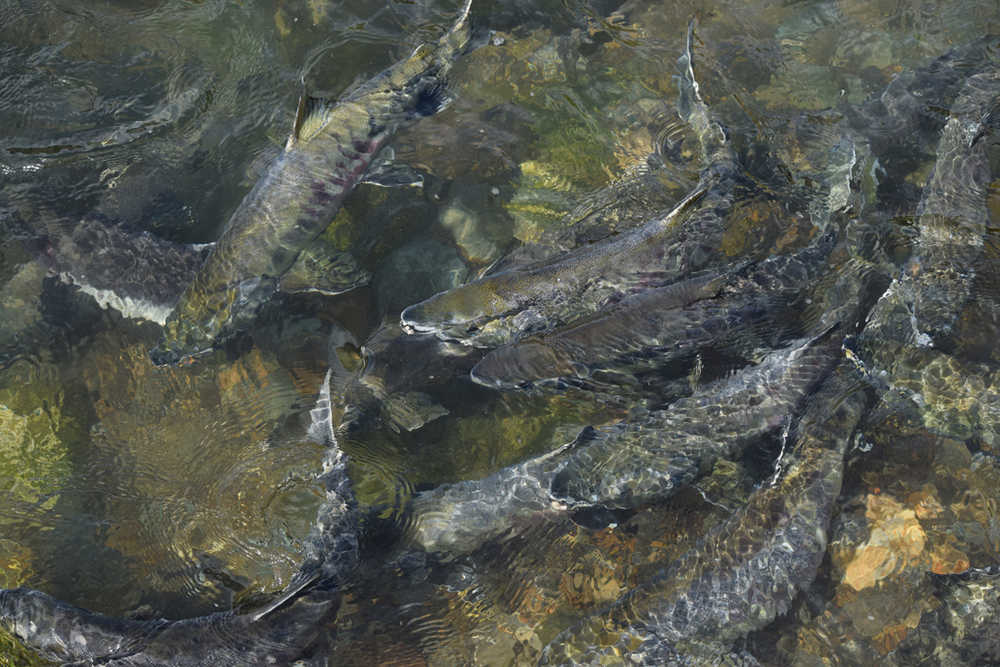State and federal managers don’t yet know what to expect after the U.S. 9th Circuit Court of Appeals overturned a 2011 decision by the North Pacific Fishery Management Council to remove several Alaska salmon fisheries from federal management plans.
With several regulatory meetings on the schedule before the start of the 2017 salmon season, fisheries managers will have opportunities to plot courses of action.
Industry group United Cook Inlet Drift Association, or UCIDA, filed the lawsuit in 2013 to repeal the council’s decision, which was officially Amendment 12 to the Alaska salmon fishery management plan, or FMP. The amendment formally turned over control of salmon fisheries in Cook Inlet, Prince William Sound and the Alaska Peninsula to state management.
The initial suit was rejected by U.S. Alaska District Court Judge Timothy Burgess in September 2014. A three-judge panel of the 9th Circuit unanimously remanded the case back to Burgess with instructions to find in favor the plaintiffs.
For some of the fishermen concerned, the court’s ruling was a momentous victory, while state and federal fisheries regulators resent it.
“It’s going to develop salmon management plans under the law that use the best available science and protects the habitat and harvests the surplus,” said Dave Martin, president of UCIDA, one of two groups that filed the lawsuit against the U.S. Department of Commerce, which ultimately signs off on the decisions made by the North Pacific council.
“That’s a win for the resources of the state, and for the people dependent on those resources and the economies. Even the state itself, the tax they generate, the raw fish tax and processor tax, if you’re harvesting the surplus, it benefits everybody. It takes the political management out of it.”
State managers balk at the idea.
“We do not need the U.S. government’s help in salmon management,” said Alaska Department of Fish and Game Commissioner Sam Cotten. “We obviously have to get this resolved. The U.S. doesn’t want to manage salmon in those waters.”
Julie Speegle, the communications officer for the National Marine Fisheries Service Alaska Region, said the agency is currently reviewing the court’s decision and doesn’t yet know what actions it will take.
Several fisheries meetings at the state and federal level will take place between now and the beginning of the 2017 salmon season. If the North Pacific council decides not to appeal, it will need an operational FMP by the beginning of the 2017 salmon season and likely need to collaborate with the Alaska Board of Fisheries, which manages fisheries within three miles off the Alaska shore.
Glenn Haight, the executive director of the Alaska Board of Fisheries, said he doesn’t yet know what the board will need to consider until the National Marine Fisheries Service reviews the decision and decides whether to appeal or to move forward with a federal FMP.
“I’m not sure what’s going to happen for the board. As I understand, there’s the option to appeal; it’s getting sent back to the lower court for its final decision work,” Haight said. “It’s going to be a lot of work to the council. Trying to get the two systems to mesh would be a huge pull. It’s a big question mark.”
The North Pacific Fishery Management Council will meet Oct. 5-11 in Anchorage. NMFS could indicate its intentions at that meeting, he said, which could in turn change both an upcoming Oct. 18-20 Alaska Board of Fisheries working group meeting along with the 2017 Upper Cook Inlet Board of Fisheries meeting in February.
“I’d hope the board would be attuned to making decisions based on the science and biology and the 10 National Standards the court has laid out that management has to follow,” said Martin. “That’s kind of what the job is.”
State managers are less enthusiastic. Cotten said on Sept. 23 that he fears federal management would be redundant and could potentially backfire.
“I understand the interest on part of the plaintiffs in trying to improve their situation, but I was never convinced that even if they won it would improve their situation,” he said. “What we don’t want to have happen, is a situation could come up where you would have to close those waters, and the very people asking for this decision would be impacted the worst by it.”
The lawsuit responded to a 2011 decision by the North Pacific council, one of eight councils established by the Magnuson-Stevens Act in 1976 to oversee federal fisheries between three and 200 miles off the U.S. shore.
The act, or MSA, contains 10 guidelines called the National Standards. All federal FMPs must meet the National Standards that require fisheries managers to consider optimum yield, best available science, equitable allocations and community health among other factors.
Historically, the federal government has ceded salmon management to the Alaska Department of Fish and Game since 1979, not long after the MSA was passed in 1976.
At the time the council passed Amendment 12, the council had not even reviewed the federal salmon FMP since 1990.
• DJ Summers is a reporter for the Alaska Journal of Commerce. He can be reached at daniel.summers@alaskajournal.com.

